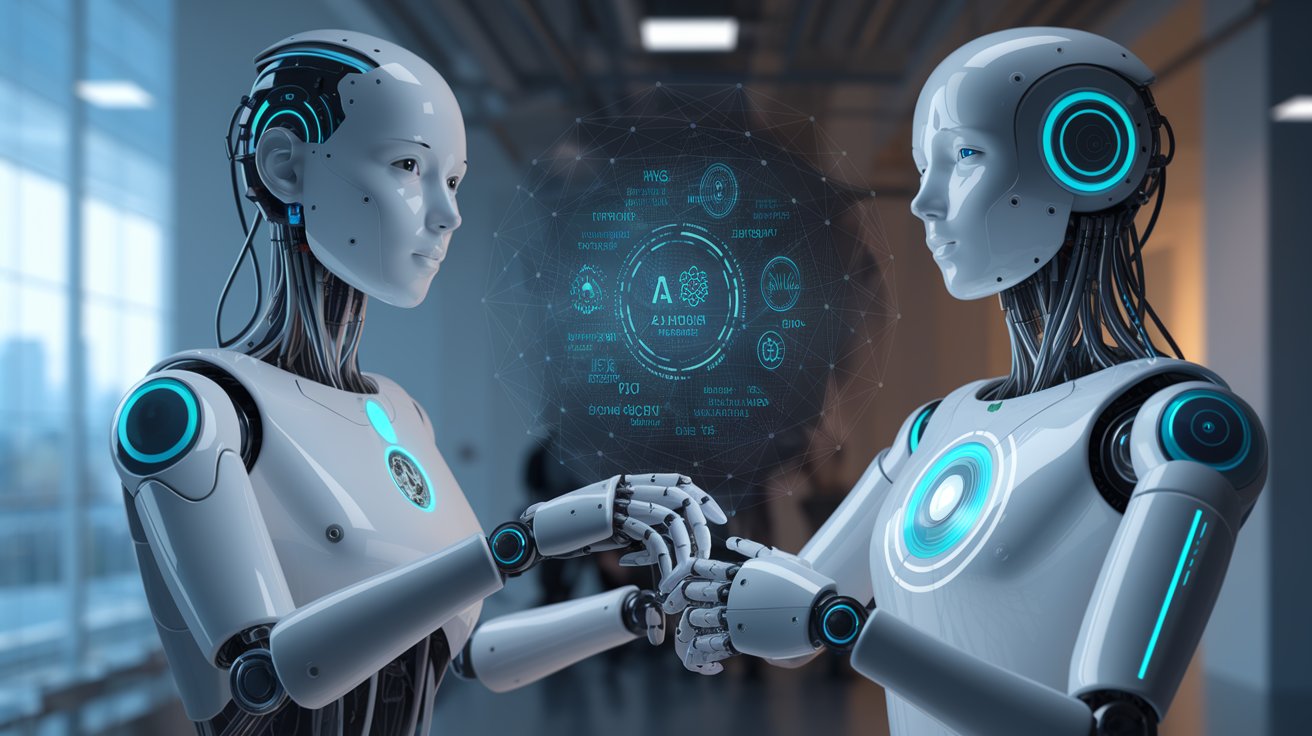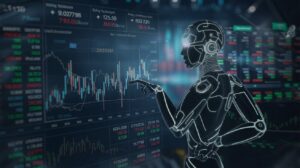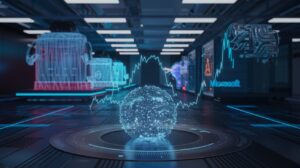Why Artificial Intelligence Is Transforming the Job Market Forever is not just a prediction; it’s happening now, reshaping industries and redefining employment dynamics. News outlets and market analyses highlight how AI is accelerating changes across sectors like manufacturing, healthcare, and retail, streamlining processes while creating new opportunities. From automating routine tasks to fostering innovative job roles, AI is both a challenge and an opportunity for today’s workforce. In this blog post, we will dive into the ways AI is transforming the job market forever, exploring its impact, challenges, and the opportunities it brings for workers and businesses alike.
Table of Contents
Understanding the Role of AI in the Job Market
AI has evolved rapidly, integrating into various sectors to improve efficiency, accuracy, and productivity. From automating repetitive tasks to analyzing large datasets, its applications are vast and transformative. This shift is not just about replacing jobs but also creating opportunities in fields that were previously unimaginable.
Key Ways AI Is Changing Employment
Automation of Repetitive Tasks
AI-powered systems excel in automating repetitive and mundane tasks. For instance:
- Customer Service: AI chatbots handle basic customer inquiries, reducing the need for large customer support teams.
- Manufacturing: Robots powered by AI streamline assembly lines, enhancing production rates.
While these advancements boost productivity, they also displace roles requiring repetitive manual input. However, they pave the way for upskilling and the creation of supervisory positions.
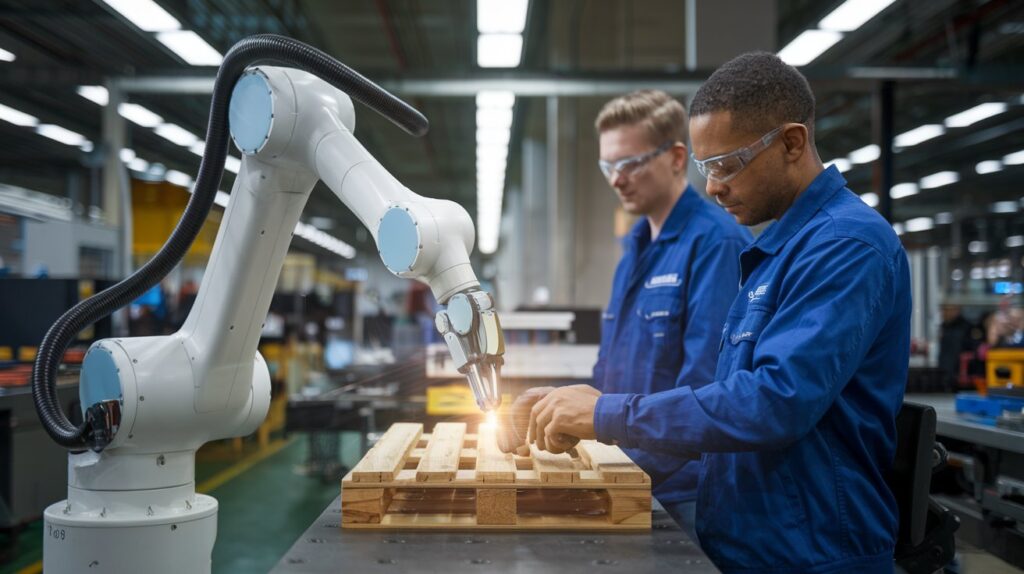
Emergence of New Job Roles
As AI takes over repetitive tasks, new job opportunities are emerging. Some roles include:
- AI Ethics Specialists
- Data Scientists
- Machine Learning Engineers
- AI Trainers
These positions require specialized skills, emphasizing the importance of adapting to technological advancements.
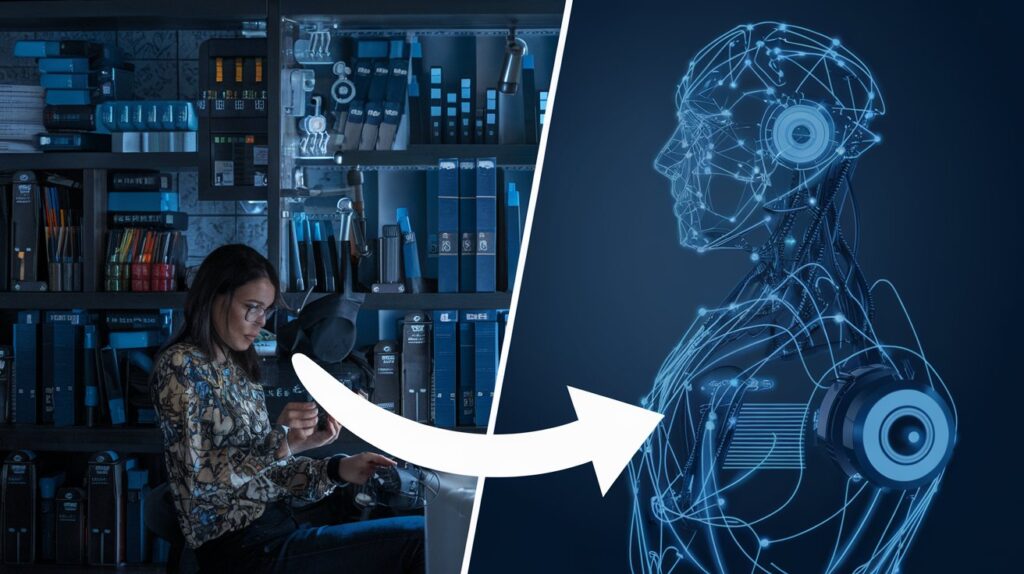
Personalized User Experiences
Industries like healthcare, education, and retail are leveraging AI to offer personalized services. Examples include:
- Healthcare: AI diagnoses diseases faster, allowing doctors to focus on complex cases.
- Education: Adaptive learning platforms tailor content to individual student needs.
This level of personalization enhances user satisfaction and creates demand for professionals who can design and maintain these systems.
Data on AI’s Impact on Employment
A Few Notable Statistics:
- 75 million jobs are expected to be displaced by AI by 2025, according to the World Economic Forum.
- 133 million new roles are anticipated to emerge, balancing the disruption caused by automation.
- 87% of companies are already adopting or planning to adopt AI technologies, highlighting its growing significance.
The Challenges and Opportunities Ahead
Challenges
- Skills Gap: Many workers lack the skills required for AI-driven roles.
- Job Displacement: Industries such as retail and transportation are particularly vulnerable to automation.
- Ethical Concerns: AI decisions can be biased, raising questions about fairness and accountability.
Opportunities
- Upskilling Programs: Companies and governments are investing in reskilling initiatives to prepare the workforce.
- Increased Productivity: Businesses can achieve greater efficiency, reducing costs and boosting innovation.
- Global Collaboration: AI allows remote work and collaboration across borders, opening international job markets.
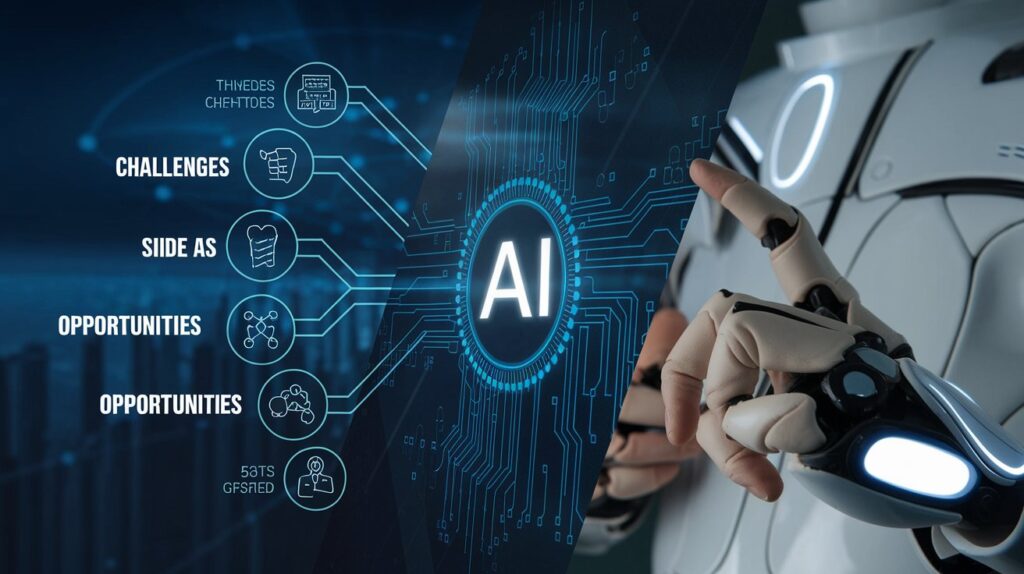
How to Prepare for an AI-Driven Job Market
Develop New Skills
Workers need to focus on acquiring skills that complement AI. Key areas include:
- Data Analysis
- Programming (Python, R)
- Critical Thinking
- Emotional Intelligence
Embrace Lifelong Learning
Continuous education is vital. Online courses, workshops, and certifications in AI-related fields can bridge the skills gap.
Foster Creativity and Adaptability
Roles requiring human creativity, innovation, and problem-solving are less likely to be automated. Professionals who can adapt to changing circumstances will thrive.
Industries Most Affected by AI
Retail
AI is revolutionizing retail through inventory management, personalized shopping experiences, and automated checkout systems. Workers must adapt to roles involving AI system management and customer engagement.
Transportation
Self-driving technology is disrupting traditional transportation jobs. However, it’s creating roles in system design, maintenance, and monitoring.
Healthcare
AI is enhancing diagnostics, surgery assistance, and patient management. Professionals must learn to work alongside AI to maximize its benefits.
Conclusion
Why Artificial Intelligence Is Transforming the Job Market Forever is a reality backed by compelling data and trends. AI is expected to contribute over $15 trillion to the global economy by 2030, according to PwC. Additionally, reports suggest that industries leveraging AI will see a 40% productivity boost within the next decade. While the rise of AI presents challenges like job displacement and a widening skills gap, it also unlocks immense opportunities for growth, innovation, and efficiency. Why Artificial Intelligence Is Transforming the Job Market Forever underscores the importance of embracing these changes, upskilling, and fostering adaptability to thrive in the evolving landscape. By taking proactive steps now, individuals and businesses can secure a competitive edge in this AI-powered era. [TechGeniuxio.com]


